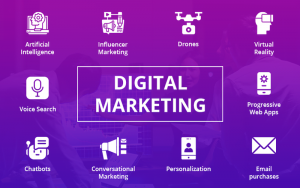SEO Hacks You Need to Start Doing Today

SEO hacks refer to strategies and techniques that can potentially yield significant improvements in search rankings, user engagement, and organic traffic. Here’s a comprehensive guide on SEO hacks you might consider implementing today:
Also Read:- Off Page SEO Case Study: 110% More Traffic in 14 Days
Keyword research is the cornerstone of an effective SEO campaign. Identify keywords and phrases that your target audience is likely to use when browsing for products, services, or industry-related information.
1. Enhance Core Web Vitals:
- Google’s Core Web Vitals are now a ranking factor. Optimize for Largest Contentful Paint (LCP), First Input Delay (FID), and Cumulative Layout Shift (CLS).
- Use tools like Google’s PageSpeed Insights to identify areas of improvement.
2. Voice Search Optimization:
- As voice searches become more popular, optimize your content by incorporating conversational keywords and questions.
- Create FAQ sections addressing common questions in your niche.
3. Optimize for Featured Snippets:
- Aim for the “Position 0” by formatting content in bullet points, tables, and Q&A formats.
- Use tools like Moz or SEMrush to identify snippet opportunities.
4. Video SEO:
- With YouTube being the second largest search engine, ensure your video titles, descriptions, and tags are keyword-optimized.
- Create engaging video thumbnails to increase click-through rates.
5. Mobile Optimization:
- Ensure your website is mobile-friendly using responsive design.
- Use Google’s Mobile-Friendly Test tool to ensure your site passes.
6. Internal Linking:
- Connect relevant articles/pages within your website.
- This helps distribute page authority and guides users deeper into your site.
7. Leverage Schema Markup:
- Implement structured data to help search engines better understand and display your content.
- Use Google’s Structured Data Markup Helper to get started.
8. Long-Tail Keywords:
- Instead of only targeting highly competitive short keywords, focus on long-tail keywords which have lower competition and might have higher conversion rates.
9. Update Outdated Content:
- Periodically revisit old blog posts or pages and update them with fresh content, images, and current data.
- Republishing can give your content a fresh lease on life in search rankings.
10. Use Latent Semantic Indexing (LSI) Keywords:
- These are terms related to your main keyword. Incorporating them can give your content more depth and relevance.
11. Maximize Click-Through Rate (CTR):
- Write compelling meta titles and descriptions to encourage users to click on your website from the search results.
12. Implement HTTPS:
- Google has confirmed HTTPS as a ranking signal. Migrate from HTTP to HTTPS to ensure site security and potentially benefit in rankings.
13. Optimize Images:
- Use tools like TinyPNG to compress images without sacrificing quality.
- Always use descriptive alt text for images.
14. Improve User Experience (UX):
- A site that’s user-friendly can lead to longer session durations and lower bounce rates.
- Prioritize site navigation, readability, and page speed.
15. Build High-Quality Backlinks:
- Prioritize white-hat link-building strategies like guest posting, influencer outreach, and creating shareable content.
16. Content Depth Over Length:
- While long-form content can rank well, it’s essential to ensure that the content depth aligns with user intent.
17. Engage Users with Interactive Content:
- Consider quizzes, surveys, or interactive infographics to engage users.
18. Use Social Proof:
- Reviews, testimonials, and case studies can bolster your site’s trustworthiness.
While these hacks can provide significant benefits, it’s essential to remember that SEO is a marathon, not a sprint. Consistency, up-to-date knowledge, and a user-centric approach are key to long-term SEO success.
Utilize keyword research tools such as Ubersuggest to identify keywords with a high search volume and low competition. Incorporate these keywords strategically into the titles, headings, meta descriptions, and body text of your website.
Optimizing the on-page elements of your website can have a significant impact on its visibility in search engine results. Pay close attention to the following:
To improve your website’s click-through rate (CTR) and search engine positioning, create engaging and keyword-rich title tags for every page.
Create meta descriptions that accurately summarize the content of your web pages and encourage users to click through to your site.
Organize your content with clear and pertinent headers, and where appropriate, include keywords.
Ensure that your URLs are succinct, descriptive, and contain relevant keywords to enhance search engine crawlers’ comprehension of your content.
Content is the foundation of any effective SEO strategy. Develop valuable, high-quality, informative, and engaging content for your target audience. Aim to answer their queries, address their pain points, and provide insightful commentary. Incorporate relevant keywords into your content naturally, but avoid keyword cramming, as it can negatively affect your website’s rankings. Consider diversifying the format of your content with videos, infographics, and interactive elements to increase user engagement and social sharing.
Backlinks, also known as incoming links, are essential for establishing your website’s authority and enhancing its search engine rankings. Concentrate on acquiring backlinks from credible websites within your industry. To earn valuable citations, seek out opportunities for guest blogging, participate in industry-specific forums, and network with influencers.
Social media signals may not directly influence search engine rankings, but a strong social media presence can indirectly benefit SEO efforts. Sharing your content on social media platforms increases its visibility, attracts potential backlinks, and increases website traffic. Engage with your audience, cultivate relationships, and promote social sharing to expand your reach and boost your SEO efforts.
Implementing these SEO strategies immediately will put you on the path to improved search engine rankings, increased organic traffic, and increased online visibility. Keep in mind that SEO is an ongoing process, and results may not be instantaneous.
Consistency, creation of high-quality content, and adherence to SEO best practices will help you achieve long-term success. You can unlock the potential for organic growth and obtain a competitive edge in the digital realm by leveraging the power of SEO.








